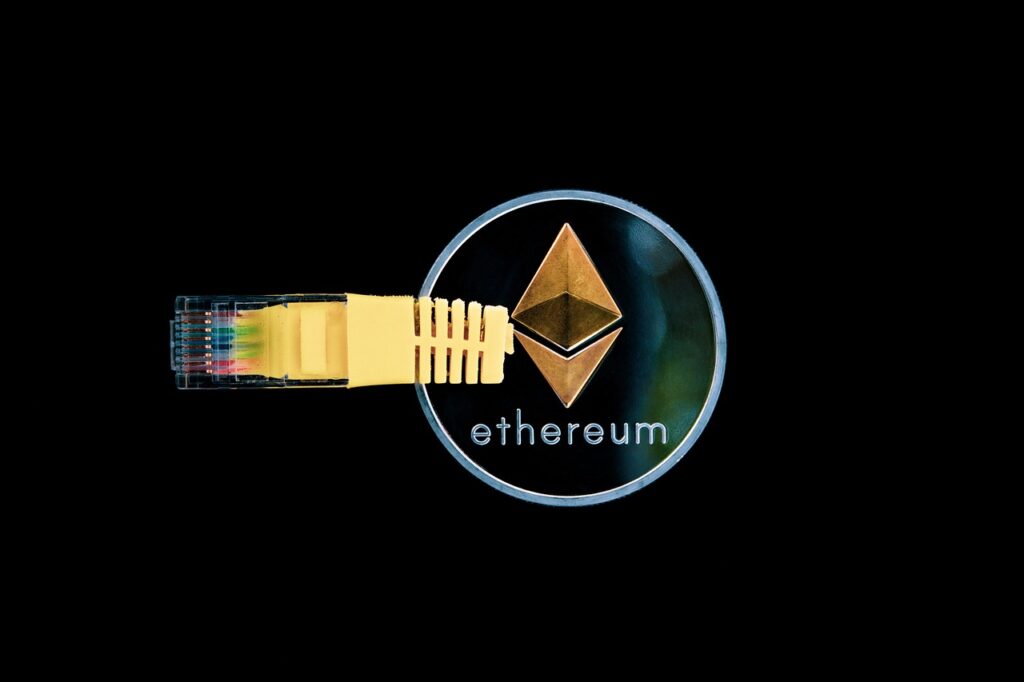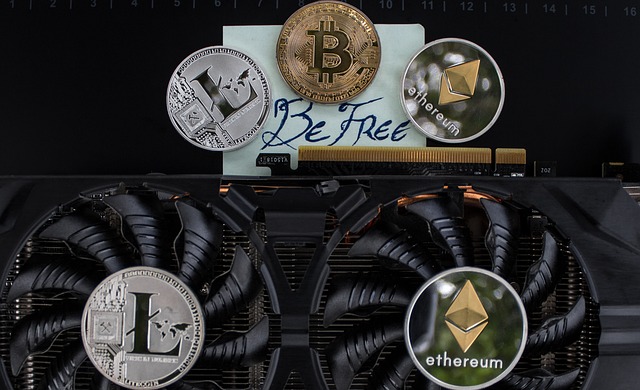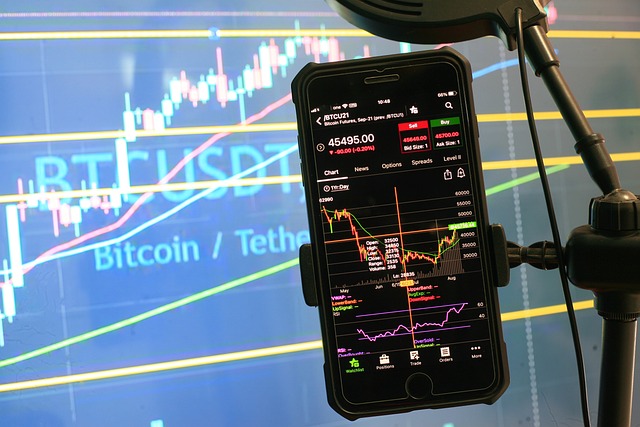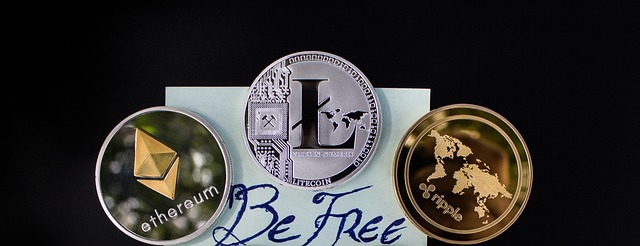Why Choose DeFi? Examining Its Advantages and Prospects
Why Choose DeFi? Examining Its Advantages and Prospects

Accessibility: Exploring the ease of access to DeFi platforms for anyone with an internet connection.
DeFi platforms offer a remarkable level of accessibility, allowing anyone with an internet connection to participate in decentralized finance. Unlike traditional financial systems that often require extensive paperwork, in-person visits, and prolonged waiting periods, DeFi platforms are accessible to users worldwide at any time and from any location. This accessibility is particularly beneficial for individuals in underserved regions with limited access to traditional banking services. With DeFi, all that is needed is an internet connection and a compatible device, such as a smartphone or computer, to access a wide range of financial services.
Furthermore, DeFi platforms have greatly simplified the onboarding process, making it easy for users to get started. Typical barriers to entry, such as credit checks or minimum deposit requirements, are largely eliminated in the DeFi space. As a result, individuals who may have been excluded from traditional financial systems due to factors like credit history or income levels, can now participate in a wide range of DeFi activities, including lending, borrowing, and yield farming. This level of inclusivity has the potential to empower individuals who were previously underserved by traditional financial systems, providing them with more opportunities to grow their wealth and access a wider range of financial services.
Financial Inclusion: Examining how DeFi opens up financial opportunities for the unbanked and underbanked.
DeFi, short for decentralized finance, has emerged as a powerful tool for promoting financial inclusion among the unbanked and underbanked populations. This innovative technology leverages blockchain and smart contract functionalities to create a more accessible and inclusive financial ecosystem. One of the key benefits of DeFi is its ability to allow individuals who lack access to traditional banking services to participate in various financial activities.
By removing the need for intermediaries such as banks, DeFi platforms enable unbanked and underbanked individuals to access a wide range of financial services directly. These services include lending, borrowing, saving, and investing, all of which were previously out of reach for many individuals due to the lack of banking infrastructure. With just an internet connection and a smartphone, individuals can now leverage DeFi applications to access loans, earn interest on their savings, and invest in various assets, regardless of their geographic location or socioeconomic status. This newfound accessibility holds tremendous potential in empowering the unbanked and underbanked, giving them the opportunity to secure financial stability and participate actively in the global economy.
• DeFi platforms eliminate the need for intermediaries like banks, allowing unbanked and underbanked individuals to directly access financial services.
• Individuals can now access loans, earn interest on savings, and invest in assets using just an internet connection and a smartphone.
• This accessibility empowers the unbanked and underbanked, enabling them to achieve financial stability and participate in the global economy.
Transparency: Discussing the transparent nature of DeFi transactions and its impact on trust and security.
DeFi transactions operate on a transparent and open platform, allowing users to verify and track each transaction in real-time. This transparent nature of DeFi transactions fosters trust and enhances security in the ecosystem. Unlike traditional financial systems that often obscure the flow of funds, DeFi provides a clear and immutable record of every transaction, ensuring that all activities are visible and accountable to the public.
The impact of this transparency is two-fold. Firstly, it builds trust among participants as they can independently verify the accuracy and integrity of transactions. This reduces the need for reliance on intermediaries, as the transparency of DeFi platforms eliminates the need for a central authority to oversee and validate transactions. Additionally, this transparency acts as a deterrent to fraudulent activities, as any malicious action can easily be identified and traced back to the responsible party. Overall, the transparent nature of DeFi transactions boosts confidence in the system and reinforces the security of user funds.
Efficiency: Highlighting the speed and cost-effectiveness of DeFi compared to traditional financial systems.
DeFi has revolutionized the financial landscape by offering users a lightning-fast and cost-effective alternative to traditional financial systems. Unlike traditional methods that often involve lengthy processing times and exorbitant fees, DeFi platforms operate on blockchain technology, enabling transactions to be executed within seconds at a fraction of the cost. This efficiency has significant implications for users looking to send money quickly or engage in high-frequency trading.

Furthermore, DeFi’s cost-effectiveness brings immense benefits to users of all backgrounds. In traditional financial systems, fees can be prohibitive for individuals with limited financial resources or those looking to invest modest amounts. However, with DeFi, the costs associated with transactions, lending, and borrowing are significantly lower. This democratization of financial services paves the way for a more inclusive and accessible financial ecosystem, where individuals of all socioeconomic backgrounds can participate and leverage their financial resources effectively. Whether it’s sending remittances to loved ones abroad or gaining access to investment opportunities, DeFi’s affordability empowers individuals to take control of their finances in an unprecedented manner.
Global Reach: Exploring how DeFi breaks down geographical barriers, enabling cross-border transactions.
DeFi, or decentralized finance, has emerged as a revolutionary force, breaking down traditional barriers in the financial world. One of the most exciting aspects of DeFi is its ability to go beyond borders, fostering cross-border transactions that were previously limited by cumbersome processes and centralized intermediaries. By leveraging blockchain technology, DeFi platforms enable individuals from all corners of the world to participate in financial activities seamlessly and securely.
The global reach of DeFi brings immense benefits to individuals and businesses alike. Traditional financial systems often impose restrictions and fees on cross-border transactions, making it difficult and costly to transfer funds internationally. However, with DeFi, these barriers are dismantled, allowing for fast and low-cost cross-border transactions. This level of accessibility has enormous implications, particularly for individuals in developing countries who previously faced hurdles in accessing financial services. With DeFi, they now have the opportunity to participate fully in the global economy, opening new doors to financial inclusion and opportunities.
Peer-to-Peer Lending: Discussing the benefits of decentralized lending and borrowing without intermediaries.
Decentralized lending and borrowing through peer-to-peer (P2P) platforms has revolutionized the traditional financial lending landscape. By eliminating intermediaries such as banks and financial institutions, P2P lending allows individuals to directly lend or borrow money from each other. This disintermediation brings several benefits to both borrowers and lenders.
For borrowers, P2P lending offers greater accessibility and convenience. Unlike traditional lending, which often involves a lengthy application process and stringent eligibility criteria, P2P lending platforms provide a simpler and more inclusive approach. As long as borrowers can provide the necessary documentation and meet specific platform requirements, they have the opportunity to access funds quickly and easily. The absence of middlemen also means borrowers can often obtain loans at more favorable terms, such as lower interest rates or flexible repayment options. This democratization of lending empowers individuals who may have previously been excluded from obtaining loans from traditional financial institutions.
Yield Farming: Exploring the potential for earning passive income through DeFi’s innovative farming strategies.
Yield farming has emerged as one of the most popular strategies in the world of decentralized finance. By participating in yield farming, individuals can earn passive income by providing liquidity to DeFi protocols. This innovative farming strategy involves lending out their crypto assets to earn additional tokens or fees as rewards.
One of the key benefits of yield farming is the potential for high returns. By staking their assets in DeFi protocols, individuals can earn a portion of the transaction fees or newly minted tokens. These rewards can often be significantly higher than traditional savings accounts or other investment options. Moreover, yield farming allows individuals to put their idle assets to work, generating income without actively trading or managing investments.
However, it is important to note that yield farming also carries certain risks. The volatility of the cryptocurrency market can affect the value of the rewards earned through yield farming. Additionally, the security of the chosen DeFi protocol should be thoroughly assessed to mitigate the risk of potential hacks or exploits. Despite these risks, the potential for earning passive income through DeFi’s innovative farming strategies has attracted many individuals seeking to make the most of their crypto assets.
Programmability: Discussing the flexibility and programmability of DeFi protocols, allowing for customizable financial applications.
DeFi protocols offer a remarkable level of flexibility and programmability, unlocking a whole new world of customizable financial applications. Unlike traditional financial systems that are rigid and predetermined, DeFi protocols allow developers to build their own applications and smart contracts on the blockchain. This programmability enables a wide range of innovative use cases and financial instruments, empowering users to design customized solutions that fit their specific needs.
One of the key advantages of programmability in DeFi is the ability to create decentralized exchanges (DEXs). These platforms allow users to trade digital assets directly with each other, without the need for intermediaries. By leveraging smart contracts, DEXs can facilitate peer-to-peer transactions in a transparent and secure manner. Additionally, developers can create complex trading strategies and liquidity pools, enabling efficient and automated market-making.

Security: Examining the robust security measures implemented in DeFi platforms to protect user funds.
DeFi platforms have significantly prioritized the security of user funds, implementing robust measures to protect against potential vulnerabilities. One of the key security features embraced by these platforms is the utilization of smart contracts. These self-executing contracts are built on blockchain technology, eliminating the need for intermediaries and reducing the risk of human error or manipulation. By leveraging smart contracts, DeFi platforms ensure that transactions are executed automatically and transparently, minimizing the possibility of fraud or unauthorized access.
Additionally, DeFi platforms employ rigorous security audits and vulnerability testing to identify and address any potential weaknesses. Through continuous monitoring and assessment, developers can proactively safeguard the platform against potential threats. Moreover, DeFi protocols often utilize multi-signature authentication, ensuring that multiple authorized parties are required to initiate any transaction. This adds an extra layer of security and reduces the risk of unauthorized access or fraudulent activities. The emphasis on security measures in DeFi platforms provides users with the confidence and peace of mind to participate in the ecosystem without concerns about the safety of their funds.
Future Prospects: Discussing the potential growth and development of DeFi in various sectors, such as insurance and decentralized exchanges.
Insurance:
DeFi has the potential to disrupt the traditional insurance industry by offering decentralized insurance solutions. In traditional insurance systems, intermediaries play a significant role in the process, leading to delays, high fees, and limited transparency. With DeFi, smart contracts can automate the entire insurance process, reducing overhead costs and increasing efficiency. This means that individuals and businesses can customize their insurance policies and receive payouts automatically without the need for lengthy claims processes. The decentralized nature of DeFi also ensures that insurance funds are managed securely, reducing the risk of fraud. As DeFi continues to gain traction and evolve, we can expect to see more innovative insurance products and improved access to insurance services for individuals and businesses worldwide.
Decentralized Exchanges:
Decentralized exchanges (DEXs) are one of the most promising sectors within the DeFi space. Traditionally, centralized exchanges act as intermediaries between buyers and sellers, resulting in limitations such as higher transaction fees, potential security risks, and limited control over assets. DEXs, on the other hand, eliminate the need for intermediaries by leveraging smart contracts to facilitate peer-to-peer transactions.

What is DeFi?
DeFi stands for decentralized finance, which refers to a system that allows people to access financial services without the need for intermediaries like banks.
How accessible are DeFi platforms?
DeFi platforms are highly accessible as long as you have an internet connection. They can be accessed from anywhere in the world at any time.
How does DeFi help with financial inclusion?
DeFi opens up financial opportunities for the unbanked and underbanked population by providing them with access to various financial services that were previously out of reach.
Are DeFi transactions transparent?
Absolutely! DeFi transactions are known for their transparent nature. Every transaction is recorded on a public blockchain, making it easy to track and verify.
What advantages does DeFi offer in terms of efficiency?
DeFi is known for its speed and cost-effectiveness compared to traditional financial systems. Transactions can be completed quickly and with minimal fees.
Can DeFi be used for cross-border transactions?
Yes, DeFi breaks down geographical barriers and enables cross-border transactions. It allows people from different countries to transact with each other seamlessly.
What is peer-to-peer lending in DeFi?
Peer-to-peer lending in DeFi refers to the ability to lend and borrow directly with other individuals without the need for intermediaries like banks. It offers more flexibility and often comes with better interest rates.
How can one earn passive income through DeFi?
DeFi offers the opportunity for passive income through a concept called yield farming. By providing liquidity to certain DeFi protocols, users can earn rewards or interest on their assets.
What is the programmability of DeFi protocols?
DeFi protocols are highly programmable, allowing developers to create customizable financial applications and smart contracts to suit specific needs.
How secure are DeFi platforms?
DeFi platforms implement robust security measures to protect user funds. They often utilize encryption, multi-factor authentication, and audited smart contracts to ensure safety.
What are the future prospects of DeFi?
The future of DeFi looks promising, with potential growth and development in various sectors. It has the potential to revolutionize industries like insurance and decentralized exchanges, providing more accessible and efficient solutions.
Todays Featured Product:
Buy, exchange and grow your crypto securely with a Ledger hardware wallet, combined with the Ledger Live app. It’s never been easier to keep your crypto safe and accessible. Buy direct from Ledger.com and get todays Special Offers Here.




